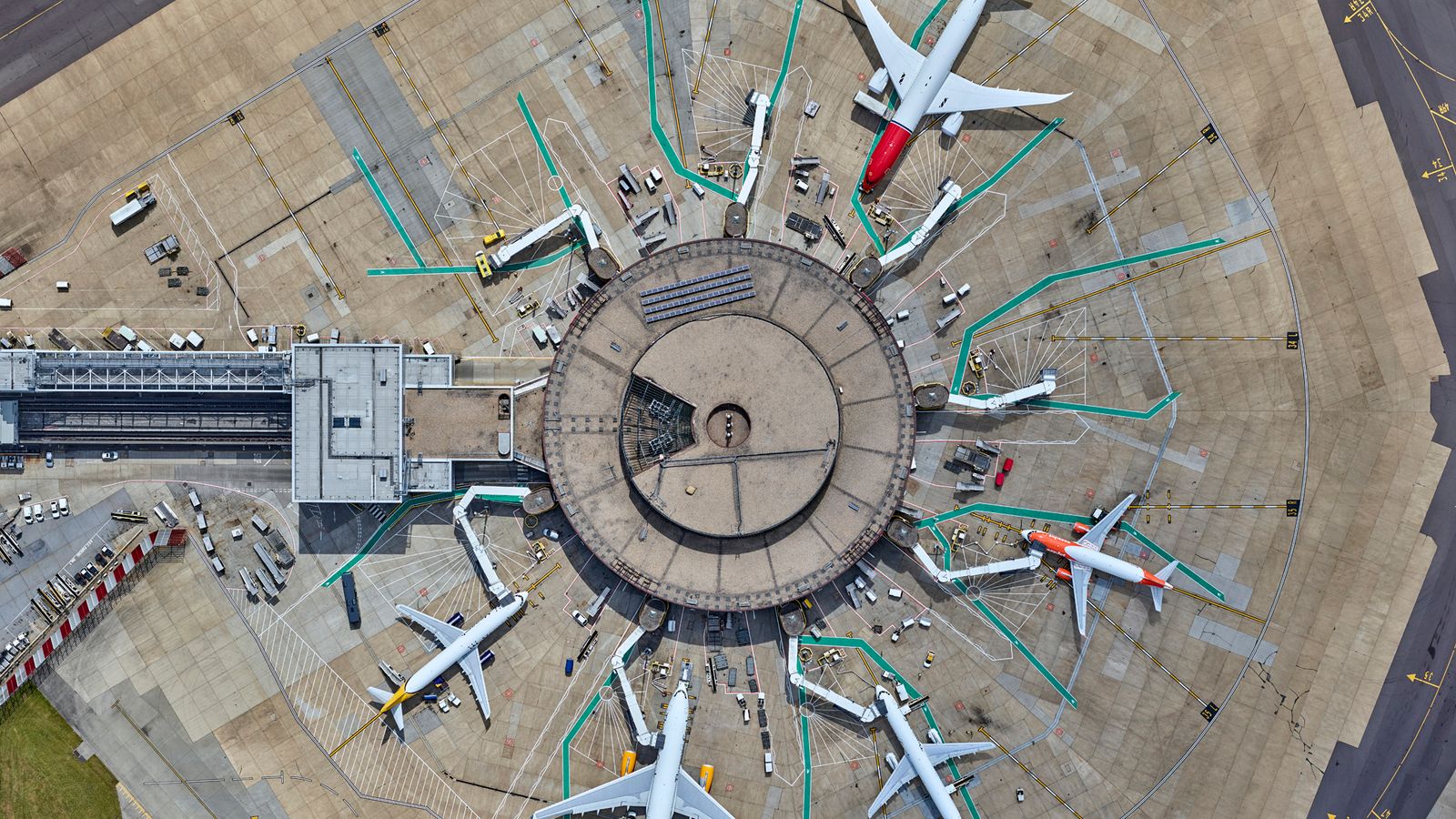London Gatwick has put a daily cap on its flights this week, affecting both departures and arrivals.
A total of around 164 flights are expected to be cancelled this week after the airport began limiting daily flights to 800 until Sunday.
This means at least 29 flights will be called off every day this week, except on Tuesday 26 September and Saturday 30 September.
Here is everything we currently know:
How many flights are set to be cancelled on each day of the week?
The cap means there will be the following number of planned flights called off:
Wednesday 27 September: 29 fewer flights
Gatwick Airport temporarily limits flight numbers due to staff sickness in air traffic control
Gatwick Airport flights cancelled, delayed or diverted due to staff absence in air traffic control
Air traffic control chaos: Could it happen again?
Thursday 28 September: 40 fewer flights
Friday 29 September: 65 fewer flights
Sunday 1 October: 30 fewer flights
Why is the cap in place?
It’s the result of sickness among air traffic control staff.
Gatwick says 30% of its NATS (National Air Traffic Services) staff are currently unavailable for a variety of medical reasons, including COVID infections.
NATS admitted it couldn’t manage the number of flights that were originally planned for this week.
Gatwick then introduced a pre-determined limit to try to prevent last-minute cancellations and delays for passengers.
How will you know if your flight is cancelled?
Gatwick has advised passengers to check the status of their flights directly with their airlines.
It is expected that airlines will inform passengers if a flight is being cancelled a day before it is set to take off.
What are your rights?
Under UK law, if your flight is cancelled the airline must either give you a refund or book you on an alternative flight – either with it or a rival airline.
It is up to you whether you still want to travel at that time – or reschedule your flight for a later date.
If your flight is cancelled within 14 days of travel – and you can prove it was the airline’s fault – you are entitled to compensation.
But in ‘extraordinary circumstances’ where the cause of a cancellation is out of an airline’s control, it is likely to get out of paying.
Be the first to get Breaking News
Install the Sky News app for free
Which airlines are most affected?
As Gatwick is the biggest hub for easyJet, the low-cost carrier will likely be the most affected airline, followed by the likes of British Airways, Ryanair, Wizz Air and Tui.
An easyJet spokesperson has said affected passengers will be contacted “as soon as possible” and may be able to rebook or get a refund.
EasyJet’s chief executive, Johan Lundgren, added: “While it is regrettable that a temporary limit on capacity at Gatwick Airport is required, we believe that it is the right action by the airport so on-the-day cancellations and delays can be avoided.
“Gatwick Airport and NATS now need to work on a longer-term plan so the resilience of ATC (air traffic control) at Gatwick is improved and fit for purpose.”
Read more:
Accusations after passenger in wheelchair left behind
Full list of services affected by rail and Tube action
What is going on with NATS?
NATS was already facing criticism after what it labelled a “one in 15 million” technical failure led to over 1,500 flight cancellations and hundreds of delays on Bank Holiday Monday, 28 August.
After apologising to passengers over its latest difficulties, NATS said in a statement: “Given the levels of sickness we have experienced over the last few weeks we believe it is the responsible thing to do to limit the number of flights this week in order to reduce the risk of daily disruption to passengers using the airport.
“Our operational resilience in the tower will improve as our staff return to work and we move out of the summer schedule, which is particularly busy at Gatwick.
Click to subscribe to the Sky News Daily wherever you get your podcasts
“We continue to train additional air traffic controllers and expect another group to qualify to work in the tower over coming months, ready for next summer.
“Even an experienced air traffic controller takes at least nine months to qualify at Gatwick and very few are able to do so, as Gatwick is such a busy and complex air traffic environment.”







